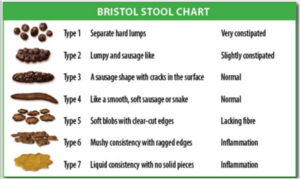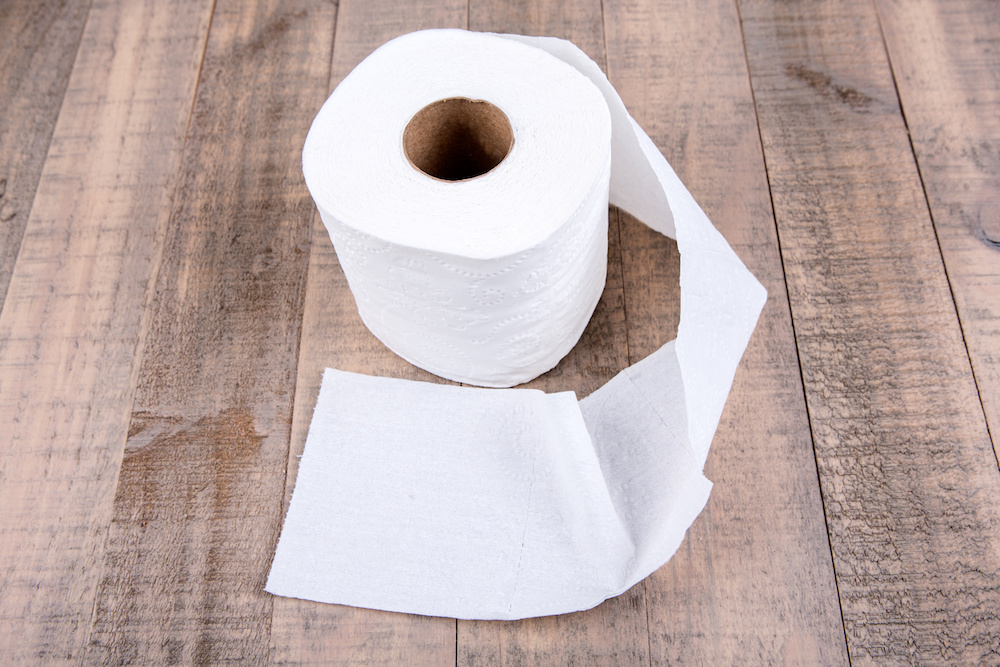I poop, you poop, we all poop. But why are we even talking about poop? Why is the consistency of our stool (poop) important? It is one way to identify our overall general health. The shape and consistency of our stool (poop) can indicate possible digestive problems. The Bristol Stool Chart is a visual tool used for identifying bowel and digestive disease.

Constipation
Although constipation is very common among all ages it shouldn’t be ignored or left untreated. Stool left in the colon for extended amounts of time can be toxic to our system. There are several reasons for constipation. Some of the most common are; inadequate hydration, insufficient fiber in our diet, nutrient deficiencies, food/chemical sensitivities, and inflammation. Finding the root cause to constipation might be difficult at times, however reducing symptoms can be as easy as increasing fluid intake and insoluble fiber in your diet, identifying any nutrient deficiencies, and reducing inflammation by checking for any food/chemical sensitivities.
Diarrhea
Diarrhea is characterized by a speedy transit. Diarrhea can be one of the symptoms in many GI diseases such as IBS, Crohn’s disease, Ulcerative colitis, and Celiac Disease. Bacteria/pathogens, food/chemical sensitivities, and stress can be involved in the pathogenesis of the disease. Addressing diarrhea is very important due to the risk vital nutrients loss, dehydration risk, and damage to the intestinal lining. Determining the root cause of diarrhea include: determining food/chemical triggers (through Mediator Release Test -MRT testing), checking for bacteria/pathogens (stool testing), and possibly other diagnostic tests. Immediate management of the symptoms can be implemented by eating foods that can help bulk up the stool (bananas, bread, rice) removing known food triggers (dairy, gluten, artificial sweeteners, acidic foods), reduce stressors (deep breathing, yoga, meditation) and making sure you rehydrate. From my experience working with numerous clients, I have found the most success with identifying and eliminating the food/chemicals that could be promoting to the symptoms. This can be done by keeping a food diary list and monitoring symptoms. Nevertheless, one can have a reaction even to healthy foods or to basic foods usually found on an elimination diet, or be able to tolerate 2 strawberries but react to 4. That is where taking a simple blood test, and following a personalized meal plan, given by your Dietitian, has the biggest impact in reducing symptoms and inflammation.
In conclusion, poop doesn’t lie, it is our body’s way of telling us what might be going on in our body. Please do not ignore these important signs and symptoms. If following an elimination diet seems cumbersome to you and if you feel that getting tested seems less of a trouble, that means you made the right choice. Don’t hesitate to call me, I am a Registered Dietitian and am certified to deal with food sensitivities. I will be very happy to assist you in regaining your health. Are you tired of being the party pooper (pun intended)? Don’t wait another minute, be the party hero and call today.


